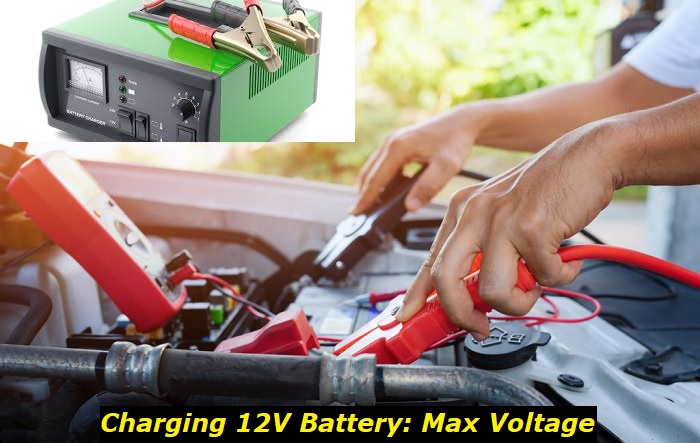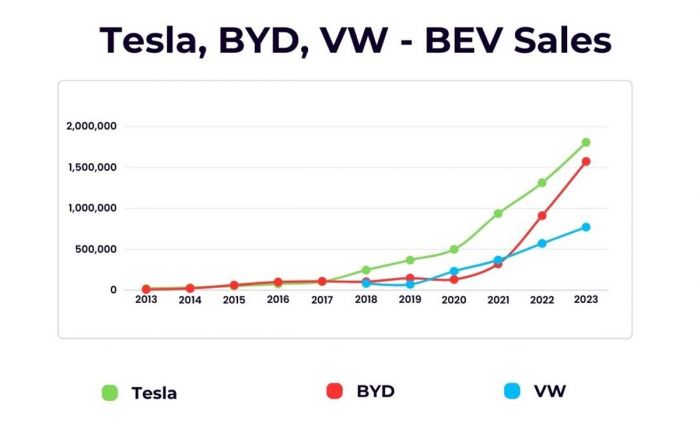Charging a car battery is not as easy and straightforward as you may think. You need to know about the allowed maximum voltage, optimal current, restrictions in terms of the duration of charging, etc. And while the work is done by a professional charger that is more or less automatic in making important decisions, sometimes, we need to know more about the process.
Car battery charging highlights
- Critical voltage:lower than 12 volts
- Target voltage:12.5 volts
- Charging voltage:14 - 14.7 volts
- Charging time:defined by tender
- Risks:battery death
- DIY solution:yes
- Tools needed:charger, power socket
- Price:$1

Charging voltage from your alternator - checking the basics
When you are driving your vehicle, the battery is automatically charged by the alternator. This is the special machine that is rotated by the engine and it produces electricity to power all your onboard electronics when the engine is on. Also, one of the primary tasks of this machine is to charge the battery that lost some charge when you were starting the engine.
Alternators are set to produce 14 to 14.7 Volts to successfully charge the battery. Usually, the healthy voltage of alternator charging in your vehicle should be between 14.2 and 14.5 V. The current of each alternator depends on its type and settings, so the charging in every model will be conducted at its individual speed.
Here's why this information is important for you:
- the voltage of the car battery is up to 12.5V when in calm mode, so when it doesn't power anything and the engine is not on;
- if the battery voltage checks lower or much higher than that, most likely, the battery is out of order;
- when the engine is started, the battery voltage changes to 14.2-14.5V because the alternator immediately starts charging it;
- if, in this case, the voltage reads much higher or lower, you may suspect that the battery is dead or the alternator is not doing its job well;
- the dying battery will not be able to take the charge, so even when charged by an alternator, it will have a lower voltage than 14V;
- if the voltage in the entire electrical system of the car is lower than 14V when the engine is running, the problem is most likely with the alternator.
If the battery is not charged properly when you are driving, it will deteriorate quickly and lose all its juice. After just several weeks, you will lose the battery and will not be able to start the car. So, it's important to know if the 12V battery is charged by the alternator.
Also, you may want to check the battery from time to time and use a special charger to maintain it. This is not usually needed if you drive a lot on highways. But if your driving routine is mostly city with short rides, the battery will quickly lose its charge and will need to be recharged.
Charging a battery - what voltage should you choose?
The majority of modern car battery chargers offer automatic voltage adjustment according to the type of battery which they can detect. Some of them will also have the switch between 12V and 24V. It doesn't mean that their output will be 12V or 24V correspondently. It means that a certain mode will be suitable for a certain type of battery. In passenger cars, 12V batteries are usually used while in trucks and semi trucks, 24V batteries may be used.
So, you don't manually choose the voltage when you are charging your battery with a special charger - you just choose the proper mode and the charger adjusts all the other parameters according to their software and control units.
But if you are charging the car battery with an ancient piece of equipment where you should manually set the voltage parameters, you should go with 14.2-14.5 Volts. If you set less than 14V, the battery will take days or even weeks to charge. Also, if you set more than 14.7V, the battery will start degrading right away. It will emit some bad fumes that will eventually cause corrosion of the terminals and will kill the battery.
The optimal charging voltage is 14.5V - this is the industry standard for all types of 12V batteries. But the voltage and the current are not stable during the charging period. A professional charger will adjust the current and the voltage step by step to charge your battery safely and avoid damaging it. While all those manual pieces of charging equipment will only make it worse and may even kill your battery.
Here is what you should remember when charging a car battery:
- there are different types of batteries like lead-acid, AGM, gel, etc. and each type will require its own scenario of charging;
- too low voltage and/or too weak current will not charge the battery properly or will do it for several days which is not practical;
- too high voltage and/or too strong current will basically melt the battery, it will boil and will not take the charge in the end;
- too quick or too slow charging is both bad for the battery, so all adjustments should be made if your charger needs these adjustments and doesn't make them automatically;
there are three stages in charging a 12V battery for your car and those stages are programmed in good chargers, they apply different voltage and current ratios to improve the process and make it safe for the battery.
Now you know that charging your battery with a piece of old equipment is not a really good idea. While you can make some progress with these things, you will not be able to quickly charge the battery to the full of its potential. And this may also kill your battery if you don't know what and how you should do.
How to choose a proper charger?
If you need a charger for your battery, pay attention to some mid-price-range options made by more or less famous brands. Also, notice if those chargers that you are looking at are good for your type of battery.
One of the most common mistakes is the purchase of a weak charger that can add too little charge for one hour. They cost less but they will take forever to charge a solid 12V battery from a modern vehicle.
For example, your SUV or truck may have a battery with 100 Ah of capacity. It means that a charger that has a maximum current of 3A will charge this battery for approximately 30 hours or even more depending on its initial condition. In this case, you should buy a charger that can add about 5A or 6A per hour and this will reduce the charging time to 15-20 hours.
But also remember that the maximum current to add to a battery is about 10% of its capacity per hour. If you add more, the battery may just overheat and melt which means you will have to throw it away.
How to maintain a car battery to make it live longer?
If you have a simple lead-acid 12V battery in your vehicle, maintaining it will go down to measuring its voltage in two conditions: when the car is on and when the engine is off. In the first case, it should show you about 12.5V, and in the second - about 14.2-14.5V. If things are different, check the battery and check the alternator. If the battery is low, just use a modern charger to get it back to life.
If you have the start-stop vehicle, you will most likely have the AGM battery in it. This means that it will not show less than 12.5V until it's dead. Also, charging these batteries is only possible with a special AGM charger that uses a certain scenario and is safe for these batteries.
Gel units are even more tender and need more attention in terms of their condition.
Here are some tips to prolong the lifespan of any car battery:
- never allow your battery to lose all its juice;
- always pay attention to the behavior of the battery, especially in winter;
- twice a year, measure the voltage of the battery when the engine is on and off;
- once every 5 years consider replacing the old battery with a new one.
The average lifespan of any 12V battery in a car is about 5 years. It may live longer but after it hits this time mark, it becomes much less reliable and can let you down anytime. But we've seen batteries that managed to live 10 and more years with proper maintenance.
About the authors
The CarAraC research team is composed of seasoned auto mechanics and automotive industry professionals, including individuals with advanced degrees and certifications in their field. Our team members boast prestigious credentials, reflecting their extensive knowledge and skills. These qualifications include: IMI: Institute of the Motor Industry, ASE-Certified Master Automobile Technicians; Coventry University, Graduate of MA in Automotive Journalism; Politecnico di Torino, Italy, MS Automotive Engineering; Ss. Cyril and Methodius University in Skopje, Mechanical University in Skopje; TOC Automotive College; DHA Suffa University, Department of Mechanical Engineering






Add comment